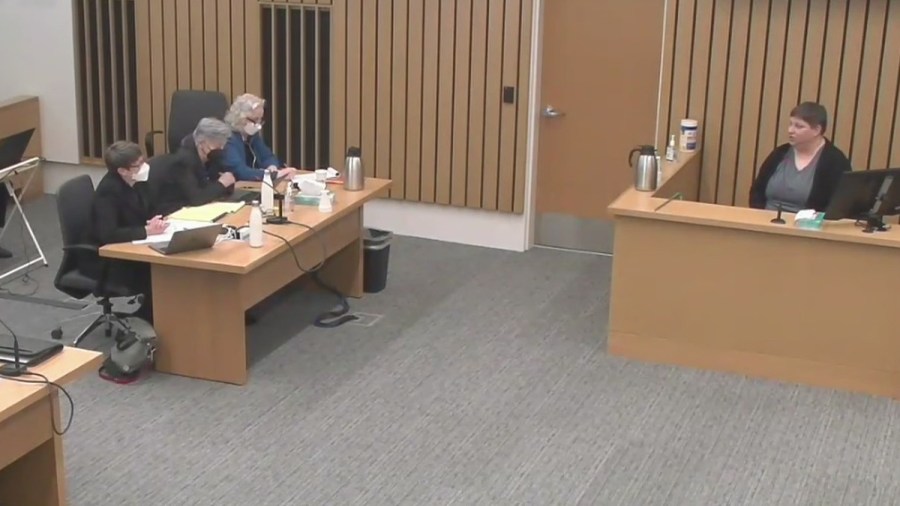PORTLAND, Ore. (KOIN) – Nancy Crampton Brophy did not meet the criteria for any psychiatric or psychological diagnosis, according to a psychologist who testified for the defense Tuesday.
Nancy is accused of murdering her husband, Daniel Brophy, at the Oregon Culinary Institute on June 2, 2018. Tuesday marked the 17th day of Nancy’s trial.

Most of the day’s testimony was occupied by Patricia Warford, a psychologist who performed evaluations on Nancy, reviewed police reports, looked at text message exchanges between Nancy and Daniel, and read statements from family members and friends to determine Nancy’s mental state and the health of the couple’s relationship.
Warford and Shana Greenlick, a former employee of Nancy’s and friend of Nancy and Daniel, were the only two witnesses to testify Tuesday.
Here are three takeaways from the 17th day of the trial:
Brophys did not have an abusive relationship
Warford said she looked at more than 200 pages of text messages sent between Nancy and Daniel Brophy from 2016 to the day of his murder to help determine the health of their relationship. Based on those texts and statements from friends and Nancy’s niece who lived with the Brophys for a year, Warford believes they did not have an abusive relationship.
“There’s nothing to imply domestic violence,” she said.
Just because a relationship isn’t abusive doesn’t mean it’s healthy, but Warford also said the Brophys seemed to have a healthy relationship. They had commitment and trust of one another, knew each other well, and leaned on one another.
She said the text messages between them seemed mundane and she didn’t find any contempt and hardly any complaints in them.
Nancy doesn’t meet criteria for psychological diagnosis
Warford said she spent about 10 hours interviewing Nancy, administered psychological tests to Nancy, and also read at least a dozen statements from friends and family members who described Nancy.
Based on her findings, Warford said Nancy doesn’t meet any criteria for a psychological or psychiatric diagnosis.
She said Nancy has no history of mental illness and no history of substance abuse.
“She tends to be independent. She tends to be fairly forthright. She’s going to tell you directly. She tends to be cognitive. She’s a thinker. She’s not somebody who is going to be overly emotional,” Warford said, describing Nancy’s character traits.
Warford also said based on one of the tests she performed, Nancy does not appear to be a psychopath.
Nancy consciously distorted her response in one evaluation
In one of the standardized test evaluations Warford performed on Nancy, the test results showed Nancy was denying problems in an extreme manner.
Individuals who present this pattern on the test, the Minnesota Multiphasic Personality Inventory-2 test, appear to have consciously distorted their response to create the impression that they are extremely moral and virtuous and have no personal shortcomings, according to the test results.
Warford said this isn’t uncommon to see in people who take this test during divorce proceedings or custody battles and that sometimes people try to make themselves look better through these tests.
Warford said Nancy’s scores in this area were only mildly elevated and said that when she performed the Minnesota Multiphasic Personality Inventory-3 test on Nancy, a more modern version of the test, she did not see the same self-favorable results.
Defense testimony is expected to continue
